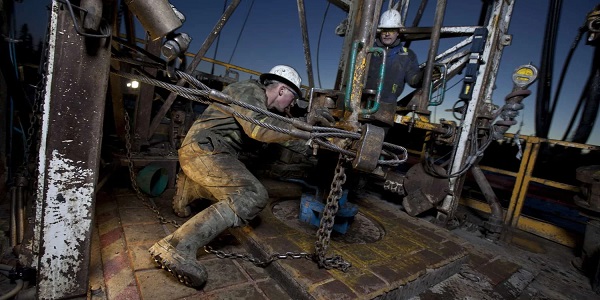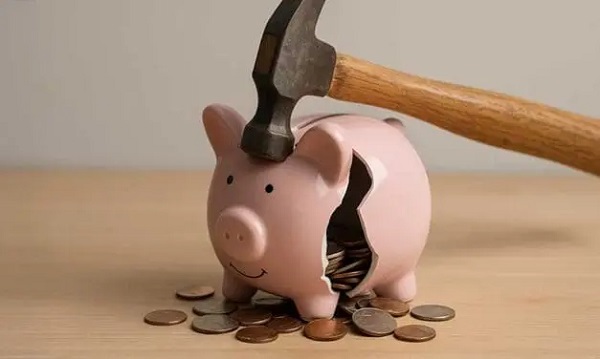Uncategorized
Indonesia recovers Lion Air jet’s cockpit voice recorder

JAKARTA, Indonesia — Navy divers have recovered the cockpit voice recorder of a Lion Air jet that crashed into the Java Sea in October, Indonesian officials said Monday, in a possible boost to the investigation into why the 2-month-old plane nosedived at high velocity, killing 189 people.
Ridwan Djamaluddin, a deputy maritime minister, told reporters that remains of some of the people who died in the crash were also discovered at the seabed location.
A spokesman for the Indonesian navy’s western fleet, Lt. Col. Agung Nugroho, said divers using high-tech “ping locator” equipment started a new search effort last week in a previously identified target area and found the voice recorder beneath 8
The bright orange device was transported to a port in Jakarta, where it was handed over to the National Transportation Safety Committee, which is overseeing the accident investigation.
“This is good news, especially for us who lost our loved ones,” said Irianto, the father of Rio Nanda Pratama, a doctor who died in the crash.
“Even though we don’t yet know the contents of the CVR, this is some relief from our despair,” he said.
The Boeing 737 MAX 8 jet plunged into the Java Sea just minutes after taking off from Jakarta, Indonesia’s capital, on Oct. 29, killing everyone on board.
The cockpit data recorder was recovered three days after the crash and showed that the jet’s airspeed indicator had malfunctioned on its last four flights. Lion Air initially claimed that problems with the aircraft were fixed before its final flight.
If the voice recorder is undamaged, it could provide valuable additional information to investigators.
The transport committee’s chairman, Soerjanto Tjahjono, said the device will be taken to the investigators’ “black box” facility. It will take three to five days to dry and clean the device and to download its data, he said.
“To analyze it, we need more time, depending on the complexity of the problem. Data obtained from CVR is expected to complete our investigation data,” Tjahjono said.
Data from a preliminary investigation report, which didn’t state any conclusions, showed that the plane’s nose pointed down 26 times on its fatal 11-minute flight despite repeated efforts by the pilots to manually aim the nose higher.
Rear Adm. Harjo Susmoro, head of the navy’s Center for Hydrography and Oceanography, said the voice recorder was found just 50
A “heroic” team of 21 divers removed debris and carried out “desludging” operations to reach the voice recorder, he said.
Susmoro said the voice recorder’s signal, designed to last 90 days following a crash, would have stopped after about 15 days.
The family of one of the pilots, 41-year-old Harvino, has sued Boeing Co. in Chicago, alleging that aircraft sensors provided inaccurate information, causing the plane to nosedive, and that Boeing failed to provide proper training to pilots on the 737 MAX 8’s features.
Indonesian media reported in December that Lion Air’s chief executive, Edward Sirait, said the airline was considering
The Lion Air crash was the worst airline disaster in Indonesia since 1997, when 234 people died on a Garuda flight near Medan. In December 2014, an AirAsia flight from Surabaya to Singapore plunged into the sea, killing all 162 people on board.
Lion Air is one of Indonesia’s youngest airlines but has grown rapidly, flying to dozens of domestic and international destinations. It has been expanding aggressively in Southeast Asia, a fast-growing region of more than 600 million people.
Niniek Karmini And Stephen Wright, The Associated Press
Uncategorized
Cost of bureaucracy balloons 80 per cent in 10 years: Public Accounts

The cost of the bureaucracy increased by $6 billion last year, according to newly released numbers in Public Accounts disclosures. The Canadian Taxpayers Federation is calling on Prime Minister Mark Carney to immediately shrink the bureaucracy.
“The Public Accounts show the cost of the federal bureaucracy is out of control,” said Franco Terrazzano, CTF Federal Director. “Tinkering around the edges won’t cut it, Carney needs to take urgent action to shrink the bloated federal bureaucracy.”
The federal bureaucracy cost taxpayers $71.4 billion in 2024-25, according to the Public Accounts. The cost of the federal bureaucracy increased by $6 billion, or more than nine per cent, over the last year.
The federal bureaucracy cost taxpayers $39.6 billion in 2015-16, according to the Public Accounts. That means the cost of the federal bureaucracy increased 80 per cent over the last 10 years. The government added 99,000 extra bureaucrats between 2015-16 and 2024-25.
Half of Canadians say federal services have gotten worse since 2016, despite the massive increase in the federal bureaucracy, according to a Leger poll.
Not only has the size of the bureaucracy increased, the cost of consultants, contractors and outsourcing has increased as well. The government spent $23.1 billion on “professional and special services” last year, according to the Public Accounts. That’s an 11 per cent increase over the previous year. The government’s spending on professional and special services more than doubled since 2015-16.
“Taxpayers should not be paying way more for in-house government bureaucrats and way more for outside help,” Terrazzano said. “Mere promises to find minor savings in the federal bureaucracy won’t fix Canada’s finances.
“Taxpayers need Carney to take urgent action and significantly cut the number of bureaucrats now.”
Table: Cost of bureaucracy and professional and special services, Public Accounts
| Year | Bureaucracy | Professional and special services |
|
$71,369,677,000 |
$23,145,218,000 |
|
|
$65,326,643,000 |
$20,771,477,000 |
|
|
$56,467,851,000 |
$18,591,373,000 |
|
|
$60,676,243,000 |
$17,511,078,000 |
|
|
$52,984,272,000 |
$14,720,455,000 |
|
|
$46,349,166,000 |
$13,334,341,000 |
|
|
$46,131,628,000 |
$12,940,395,000 |
|
|
$45,262,821,000 |
$12,950,619,000 |
|
|
$38,909,594,000 |
$11,910,257,000 |
|
|
$39,616,656,000 |
$11,082,974,000 |
Uncategorized
Trump Admin Establishing Council To Make Buildings Beautiful Again


From the Daily Caller News Foundation
By Jason Hopkins
The Trump administration is creating a first-of-its-kind task force aimed at ushering in a new “Golden Age” of beautiful infrastructure across the U.S.
The Department of Transportation (DOT) will announce the establishment of the Beautifying Transportation Infrastructure Council (BTIC) on Thursday, the Daily Caller News Foundation exclusively learned. The BTIC seeks to advise Transportation Secretary Sean Duffy on design and policy ideas for key infrastructure projects, including highways, bridges and transit hubs.
“What happened to our country’s proud tradition of building great, big, beautiful things?” Duffy said in a statement shared with the DCNF. “It’s time the design for America’s latest infrastructure projects reflects our nation’s strength, pride, and promise.”
“We’re engaging the best and brightest minds in architectural design and engineering to make beautiful structures that move you and bring about a new Golden Age of Transportation,” Duffy continued.
Mini scoop – here is the DOT’s rollout of its Beautifying Transportation Infrastructure Council, which will be tasked with making our buildings beautiful again. pic.twitter.com/
9iV2xSxdJM — Jason Hopkins (@jasonhopkinsdc) October 23, 2025
The DOT is encouraging nominations of the country’s best architects, urban planners, artists and others to serve on the council, according to the department. While ensuring that efficiency and safety remain a top priority, the BTIC will provide guidance on projects that “enhance” public areas and develop aesthetic performance metrics.
The new council aligns with an executive order signed by President Donald Trump in August 2025 regarding infrastructure. The “Making Federal Architecture Beautiful Again” order calls for federal public buildings in the country to “respect regional architectural heritage” and aims to prevent federal construction projects from using modernist and brutalist architecture styles, instead returning to a classical style.
“The Founders, in line with great societies before them, attached great importance to Federal civic architecture,” Trump’s order stated. “They wanted America’s public buildings to inspire the American people and encourage civic virtue.”
“President George Washington and Secretary of State Thomas Jefferson consciously modeled the most important buildings in Washington, D.C., on the classical architecture of ancient Athens and Rome,” the order continued. “Because of their proven ability to meet these requirements, classical and traditional architecture are preferred modes of architectural design.”
The DOT invested millions in major infrastructure projects since Trump’s return to the White House. Duffy announced in August a $43 million transformation initiative of the New York Penn Station in New York City and in September unveiledmajor progress in the rehabilitation and modernization of Washington Union Station in Washington, D.C.
The BTIC will comprise up to 11 members who will serve two-year terms, with the chance to be reappointed, according to the DOT. The task force will meet biannually. The deadline for nominations will end Nov. 21.
-

 Business2 days ago
Business2 days agoCanada’s climate agenda hit business hard but barely cut emissions
-

 Alberta2 days ago
Alberta2 days agoAlberta Sports Hall of Fame Announces Class of 2026 Inductees
-

 Artificial Intelligence2 days ago
Artificial Intelligence2 days agoAI is accelerating the porn crisis as kids create, consume explicit deepfake images of classmates
-

 Business1 day ago
Business1 day agoCarney’s Toronto cabinet meetings cost $530,000
-

 Bruce Dowbiggin1 day ago
Bruce Dowbiggin1 day agoIntegration Or Indignation: Whose Strategy Worked Best Against Trump?
-

 Energy2 days ago
Energy2 days agoCanada following Europe’s stumble by ignoring energy reality
-

 Censorship Industrial Complex2 days ago
Censorship Industrial Complex2 days agoConservative MP Leslyn Lewis slams Liberal plan targeting religious exemption in hate speech bil
-

 Health2 days ago
Health2 days ago23,000+ Canadians died waiting for health care in one year as Liberals pushed euthanasia










